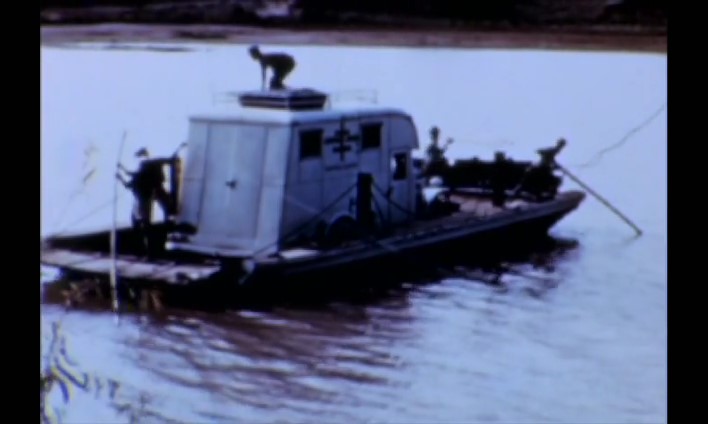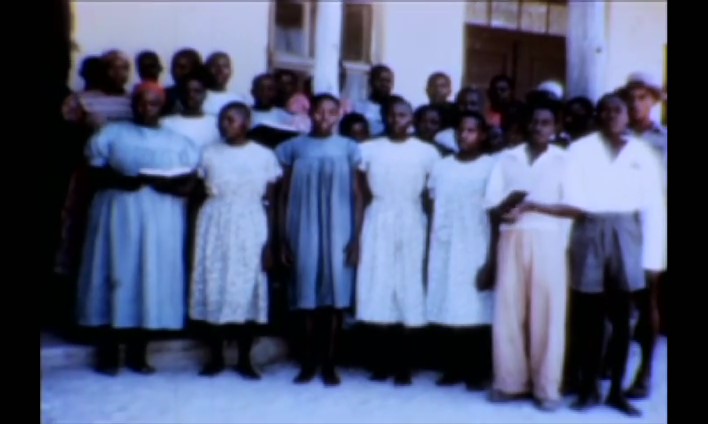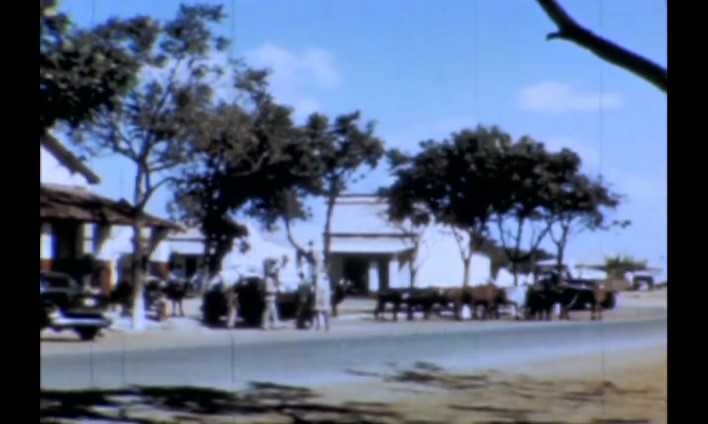WELS 49’ers Plus 70

Seventy years ago the Wisconsin Synod sent two pastors to Africa to explore locations for planting a new Lutheran mission. This week’s post is written by the grandson of Pastor Edgar Hoenecke, who was one of the missionaries on that exploratory trip and who later served as the first full-time Administrator of WELS World Missions.
I grew up a fan of the San Francisco 49ers
football team. I have many fond memories of Joe Montana & Jerry Rice
leading their team to Super Bowl victories. I also have memories of a 49er who
never played in a Super Bowl. Seventy years ago my grandfather, Pastor Edgar
Hoenecke, teamed up with Pastor Art Wacker to explore sub-saharan Africa for a
site to begin WELS mission work. Their
adventure is chronicled in the book The
WELS Forty-niners, published by the WELS Historical Institute in 1985.
Download it here: https://bit.ly/2J9NzRe
The 1947 WELS synod convention passed a
resolution authorizing the exploration of foreign mission fields. Two years
later Pastors Wacker and Hoenecke set sail on a three week journey aboard the
ship African Crescent to follow the
Great Commission. As Pastor Hoenecke said to his companion, “Jesus has commanded His followers to go into
all the world to preach the gospel. And He has spoken clearly through our synod
that our mission board should send two men to explore the African continent for
a promising field. We are under God’s orders.”
At the end of World War II European colonial
powers attempted to hold on to their African colonies, but a new Africa was
emerging. These two missionaries had a
front row seat in their Dodge caravan (not the minivan) as they drove four
thousand miles. In South Africa, the evil system of Apartheid had begun to take
hold with a new government in power. The
expedition would never have cleared the Capetown port authority but for a
birthday card sent by the missionaries to the former South African leader,
General Jan Christian Smuts. This
birthday card resulted in a letter of introduction from the former leader that
“…was an open sesame, we were to find, in moving our big camper through
customs and in obtaining a visa for Southwest Africa…”
All along their journey God provided the
answer to roadblocks to their mission through people they met along the way.
For example the Kurt Stern family, whom they had met onboard the African Crescent, welcomed the American
travellers into their home in Windhoek and provided invaluable assistance for
both repairs to the caravan and direction for the entire mission. Although Kurt
and his wife were Jewish they “were most concerned about the success of our
quest for a good mission site.” My grandfather talked late into the night with
Kurt about the hope of the Jews for a Messiah. He continued to correspond with
the Stern family throughout the remainder of his life, and some of them came to
know the Messiah as their Savior.

Then and now, travelling through Africa is
challenging. The mission explorers crossed the Orange River on a ferry with the
help of local workers that used poles to push the barge across and then up the
muddy bank. The retrofitted Dodge
caravan truck was not designed for the rough road conditions and frequently
broke down. In 1949 there was no GPS and
few road maps available. The two missionaries used a National Geographic map of
Africa to plan their routes.
An eighty-five mile detour one day brought
them to a missionary from Mississippi, Pastor Sam Coles, who had been working
in Angola for over 25 years. Pastor Coles and his wife explained that they had
grown up in Mississippi and always had the urge to “help our brothers and
sisters in Africa find Christ.” Other
stops along the journey led to the bush hospital of Dr. Anni Melander from
Finland. Dr. Melander performed “delicate eye surgery by the light of a
discarded automobile headlight” at her hospital. Both physical and spiritual
healing were core elements of this Finnish medical mission. Dr. Melander’s
native choir sang hymns for them on their visit to the clinic, just as other
vocal groups serenaded them at many stops along the way

Camping in the wilds of Africa and eating
supper under the stars was all part of the adventure. One night some bushmen (indigenous people of southern Africa) joined them around
their campfire. The bushmen surprised the two pastors by singing the German
hymns Stille Nacht (Silent Night) and
Ein Feste Burg (A Mighty Fortress)
that they had learned from German missionaries.
Pastor Wacker commented “Just think, here we’ve come halfway around the world
to preach the gospel and these bushmen a hundred or more miles from nowhere
already know our Christian hymns. I think we have come to Africa very late.”

They had not arrived too late however, because
a mission field was waiting for them in Northern Rhodesia (present day Zambia).
In Lusaka, the colonial capital of Northern Rhodesia, they located the office
of Mr. John Moffatt, the Commissioner for Native Development. The British
commissioner told Pastors Wacker and Hoenecke “Your coming to our country at
this time is a veritable godsend.” Pastor Hoenecke wrote in The WELS Forty-niners, “We had found an
English-speaking country where the government policy was designed to protect
Christian missions, but in no way to interfere with them.”
Pastor Hoenecke concluded: “The weak bumbling
efforts of the ‘WELS Forty-niners’, and their prayers have been more than
richly rewarded. By sheer grace and God’s guidance the ‘WELS Forty-niners’
struck ‘pay dirt’ in the ‘mother lode’ of Christian missions in Central Africa.” Seventy years after the WELS Forty-niners
expedition to sub-saharan Africa, the Wisconsin Synod enjoys fellowship with
sister Lutheran synods in Zambia and Malawi. In addition, WELS is partnering
with sister church bodies in Nigeria, Cameroon, Ethiopia and Kenya to reach out
to souls in those countries and several others. 70 years after the WELS
Forty-niners’ expedition, Africa still is calling. May God grant us the grace
to respond to that call, as his Gospel adventure continues to unfold.
Hank Hoenecke
serves as a Lutheran school principal in Ft. Myers, Florida and is also a
member of the Administrative Committee for Africa missions.
You can
also view the movie Africa Still Calls, which captures the WELS Forty-niner’s
mission trip on 6mm film here: https://bit.ly/2PVJn86 Although the movie quality is subpar and at
times reflects the prevailing European colonialist views of the postwar era, it
is a fascinating trip back to a time when Africa as a whole was on the cusp of
coming into its own.
Please
pray for those working in fields that are ripe for harvest. Share their story,
engage with future news and receive updates. Go to this link to learn more
about our mission fields in Africa and how the Holy Spirit is working faith in
people’s hearts https://wels.net/serving-others/missions/africa







